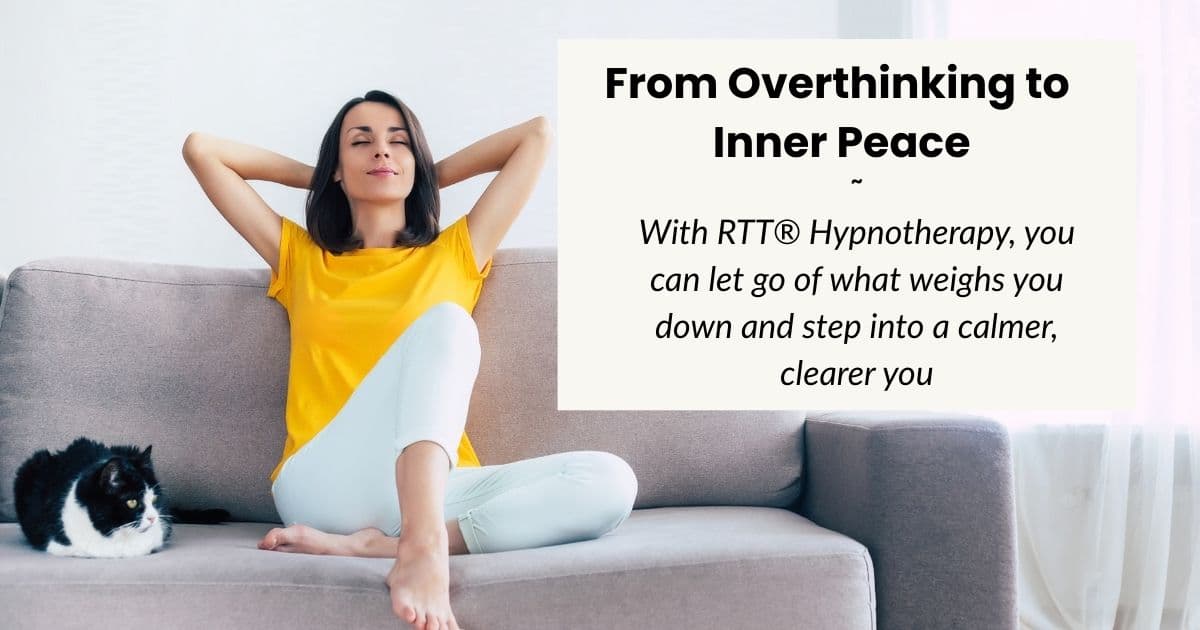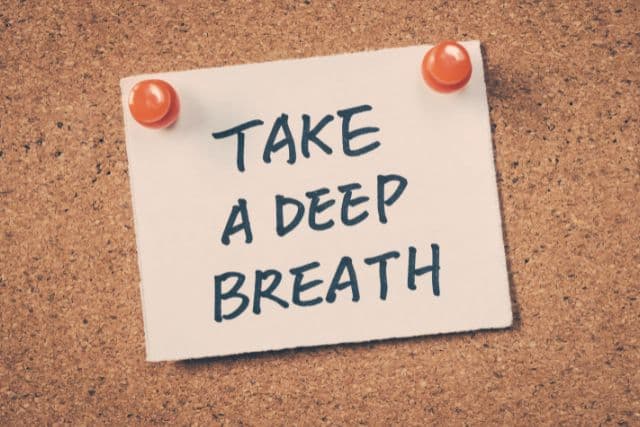
What Can I Do to Feel Less Anxious?
Anxiety can feel like a restless buzz in the mind, a racing heart, an unsettled stomach, or thoughts that won’t switch off. If you’ve ever found yourself asking, “What can I do to feel less anxious?”, you’re not alone. It’s one of the most searched questions online today, which shows just how many people are looking for relief.
The good news? There are simple, evidence-based ways to calm your system and feel more grounded.
What Can I Do to Feel Less Anxious Quickly?
Sometimes you just need fast relief. Try the 4-7-8 breathing technique: breathe in for 4, hold for 7, breathe out slowly for 8. Even a few rounds can help lower stress within minutes.
Grounding exercises are another useful tool. One popular method is the 5-4-3-2-1 technique: notice 5 things you can see, 4 things you can touch, 3 things you can hear, 2 things you can smell, and 1 thing you can taste. This works because anxiety pulls you into the future, grounding pulls you back into the here and now.
Keeping a few simple strategies in your back pocket means you’ll always have something to lean on when anxiety spikes unexpectedly.

What Can I Do to Feel Less Anxious at Night?
Night-time anxiety is common; your body slows down, but your mind speeds up. Creating a calm routine can make all the difference. Switch off screens an hour before bed to avoid overstimulating your brain, and dim the lights to encourage melatonin (your sleep hormone) to do its job.
Journaling can also be powerful. Writing down your worries or creating a to-do list for the next day helps signal to the brain that it doesn’t need to keep replaying those thoughts on loop. Pair this with a relaxing activity, like reading a light book, listening to calming music, or sipping chamomile or peppermint tea, and you’ll help train your brain to associate bedtime with winding down instead of worrying.
If your mind is still busy, progressive muscle relaxation, tensing and then releasing each muscle group from head to toe, can release physical tension and quiet mental chatter.
How does Hypnotherapy help to create better sleep? RTT® hypnotherapy and practical strategies can support deeper, more restorative rest, helping to calm the mind and reduce nighttime anxiety. For more tips, check out our Better Sleep Naturally: Hypnotherapy for Insomnia & Restful Nights
How Can I Feel Less Anxious in the Morning?
Mornings often set the tone for the whole day. If you wake up feeling anxious, try avoiding your phone for the first 20 minutes. Scrolling through news or emails instantly puts your nervous system on high alert. Instead, create a gentle morning ritual: stretch, breathe deeply, or step outside to feel the sun and air on your skin.
What you eat also matters. Caffeine and sugar can cause spikes in heart rate and blood sugar, which mimic the physical sensations of anxiety. A breakfast with protein and complex carbs, such as eggs on toast, yoghurt with fruit, or porridge, gives your body steady energy and helps reduce morning jitters.
Even spending a few minutes writing down what you’re grateful for or setting a small intention for the day (“I will take things one step at a time”) can give you a calmer starting point.

What Can I Do to Feel Less Anxious at Work?
Workplaces can be stressful, especially if you have deadlines, meetings, or difficult colleagues. When anxiety shows up, small shifts can help you feel more in control.
Micro-breaks: Step away from your desk every couple of hours, even for two minutes. A short walk to refill your water or stretch your shoulders helps release tension.
Breathing space: If you can, take a few slow breaths before big tasks or meetings. Even 60 seconds of mindful breathing can reset your focus.
Organisation: Write tasks down and break them into smaller steps. Anxiety feeds on overwhelm, so seeing tasks in bite-sized chunks makes them more manageable. You can also explore overcoming stress with hypnotherapy for deeper support in managing workplace stress.
Boundaries: If possible, set limits around constant email checking or unnecessary multitasking. Prioritise what really matters.
Over time, building healthier work habits can support a calmer approach to everyday stress.
Natural Ways to Feel Less Anxious Without Medication
Lifestyle plays a big role in calming your system. Some approaches people find helpful include:
Exercise: Regular movement reduces stress hormones like cortisol and boosts endorphins, which naturally lift mood.
Sleep: Aiming for 7–9 hours a night gives your brain the reset it needs to process emotions.
Nutrition: Eating balanced meals and staying hydrated supports stable energy and mood regulation.
Mindfulness & meditation: Even 5–10 minutes a day can reduce rumination and strengthen your ability to stay calm.
Hypnotherapy: Hypnotherapy is used by some people to explore unhelpful thought patterns and to encourage relaxation. Learn more about our anxiety-focused hypnotherapy sessions and how they might support you
These practices not only help ease anxious feelings in the moment but can also support long-term resilience, helping you handle stress in healthier ways.
Anxiety is a common mental health experience, and trusted health organisations offer evidence-based guidance on ways to manage symptoms and support your nervous system.
NHS guidance explains how to recognise anxiety symptoms and recommends simple self-help techniques such as grounding exercises and mindful breathing.
Mental health charity Mind also highlights that anxiety and panic are common and outlines practical self-care strategies, including calming techniques, boundary setting, and seeking support when anxiety begins to affect daily life.
Real-Life Transformation: Overcoming Anxiety and Negative Thinking
One of my clients came to me feeling overwhelmed by anxiety and stuck in a cycle of negative thinking. Through RTT® hypnotherapy, we explored the underlying beliefs that were fueling his self-doubt and anxious thoughts. Over the following weeks, he began to notice a shift: a calmer mind, greater self-confidence, and the ability to approach challenges without fear. He started trusting himself more, felt more at ease in social situations, and no longer let anxiety hold him back.
You can read the full story here: Overcoming Anxiety, Negative Thinking & Rebuilding Confidence Case Study
FAQs About Feeling Less Anxious
1. Why do I feel anxious for no reason?
Many people search “why am I anxious for no reason?” or “why does anxiety come out of nowhere?”. In reality, there’s usually a cause, stress, tiredness, caffeine, hormonal shifts, or subconscious triggers, but it isn’t always obvious. Anxiety is your body’s alarm system, and sometimes it becomes overly sensitive and fires when you’re not in danger.
2. Can diet really affect anxiety?
A common search is “can food make anxiety worse?” or “does caffeine cause anxiety?”. Yes, blood sugar spikes, dehydration, and too much caffeine can mimic or intensify anxious sensations. A steady, balanced diet helps regulate your nervous system and reduces those sudden “why do I feel shaky?” moments.
3. How do I know if my anxiety is serious?
People often type “when should I get help for anxiety?” or “is my anxiety normal?”. If anxiety is interfering with daily life, affecting sleep, or making you avoid things you’d usually do, it’s a sign to reach out for support. You don’t need to wait until it feels overwhelming to get help.
4. Why does my anxiety feel worse at night?
A lot of people search “why is my anxiety worse at night?” or “why do I overthink before bed?”. When the day quietens down, there’s less distraction and your mind finally has space to process what you’ve been holding in. Tiredness, low blood sugar, and a naturally quieter nervous system can also make worries feel louder.
5. How can I calm my nervous system quickly?
Common searches include “how to calm anxiety fast” or “quick ways to stop panic”. Simple grounding techniques, slow breathing, feeling your feet on the floor, or focusing on one physical sensation, can help your body shift out of fight‑or‑flight. Small, steady steps often work better than trying to “think your way out” of anxiety.
Final Thoughts
Feeling anxious doesn’t mean you’re broken; it means your mind and body are working overtime to protect you. With small daily shifts, many people find they can feel calmer and more in control.
If anxiety is affecting your daily life, it’s important to seek support from your GP or a qualified health professional.
You deserve calm, balance, and peace of mind. 🌿
Ready to move forward?
If anxiety is affecting your daily life, you can book a free consultation to explore personalised support options.
Book your free consultation today and take that first step toward positive change.

About the Author
Joanna Jewitt is a Clinical Hypnotherapist and Advanced RTT® Practitioner, trained personally by Marisa Peer. She helps people overcome anxiety, rebuild confidence, and break free from limiting patterns through online RTT® hypnotherapy sessions worldwide.
Client Success Stories
Case Study: From Self-Doubt to Genuine Self-Worth
– See how one client transformed deep self-doubt into lasting confidence and self-belief through RTT®.Case Study: Breaking Free from the Comfort Zone
– Discover how RTT® helped a client overcome fear and step confidently into a more fulfilling, empowered life.
Related Services
Rebuild your self-belief with RTT® Confidence Hypnotherapy
– Discover how targeted hypnotherapy techniques can help you build unshakeable self-esteem and inner strength.- Discover RTT® Hypnotherapy for anxiety and emotional healing
– Explore how hypnotherapy can support you in easing nervousness and reclaiming calm in your daily life.
Related Articles
- Why You Can’t “Think Your Way Out” of Stress or Anxiety
– A gentle look at why your brain resists change under pressure, and how to work with it, not against it. That Inner Critic and How It Fuels Anxiety
– Learn how your inner critic develops and why it has such a strong influence on anxiety.- Unlock Your Inner Confidence: Your Most Asked Questions
– Get clear answers to common questions about how confidence works and how you can cultivate more of it. - What Is RTT Hypnotherapy? A Clear, Friendly Guide to How It Works
– Learn what Rapid Transformational Therapy (RTT) is and how it can help transform your mindset and life.
